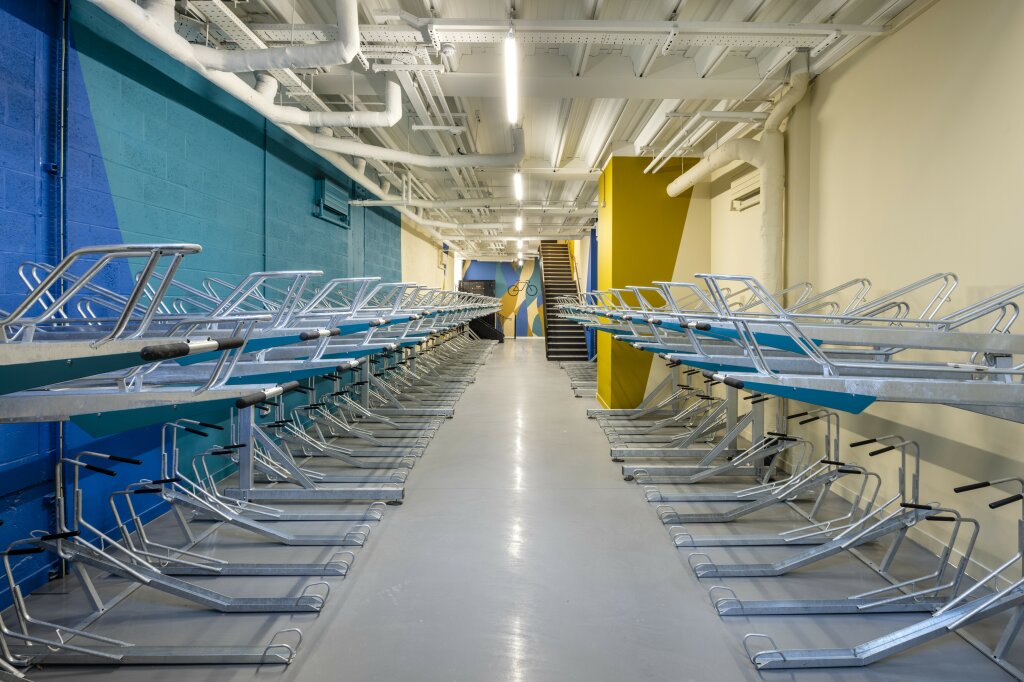It was without any sense of irony that in the same week as Cycle to Work Day, prime minister Rishi Sunak said he was on the side of motorists, ordering a review of what have been billed as "anti-car" schemes being rolled out across the UK.
This threatens to row back on the progress that has been made in promoting alternative forms of travel, of which active travel schemes and awareness days have played a key part.
Equally important has been the increased provision of active travel facilities in urban areas, particularly London, reflected in the dramatic increase in cycling over the last few years, thanks to office developers providing facilities for cycle commuters.
Government rhetoric has been reflected in financial terms too.
According to the UK's national walking, wheeling and cycling charity Sustrans, reducing the budget for active travel across England to £100m from £308m over two years has laid waste to net-zero hopes.
This threatens to scupper the progress made in recent years.
Chronic congestion
Last year the British Council for Offices produced a report, The Market Cycles II, which highlighted the growth in active commuting, including cycling and walking.
“Between 2020 and 2021 cycling in England rose by 46% while data from Mintel showed a pandemic boost in cycle sales of 22% in the UK from 2019 to 2020. E-bike sales rose by 70% year-on-year in 2020.
”
In London, the effect is likely to have been even greater, due to a combination of chronic traffic congestion, improved cycling infrastructure and commuters looking to offset rising rents and other costs.
In fact, new research proves that increasing numbers of Britons are rejecting car ownership in favour of shared and active mobility options.
A study from Collaborative Mobility UK, Britain 's national organisation promoting shared transport, found that more than 100,000 cars have been taken off London's streets as a result of the rise in car clubs since the pandemic, with those ditching their motors for membership of a car club more likely to opt for a mixture of travel modes, including walking and cycling.
However, despite recent increases in cycling, the UK still lags many other countries.
For example, despite suffering from the most traffic congestion in Europe, only 2% of all journeys in the UK are made by bike, compared to 27% in the Netherlands.
But thanks to the cost-of-living crisis combined with an increased appreciation for the value of health and wellness among office workers, cycling and demand for facilities to support active travel can only grow.
Shower the people
Occupiers have taken note of these trends, as have developers.
In 2017, the BCO found that almost half of those surveyed worked in offices without showers (45%) or secure, covered, cycle parking (47%).
In contrast, by 2022 more than four-fifths (84%) of respondents said their offices had showers while more than two-thirds (68%) had covered, secure parking.
At The Future Works, our 100,000 sq ft office building in Slough, we have considered the whole tenant journey to make active commuting as easy as possible.
The location of the bike store and changing rooms gives fast and easy access to the workspaces; there's a touch-free water fountain near the bike store for rehydration on arrival; and the changing rooms feature keyless lockers, complimentary towels, hairdryers and hair straighteners.
Similarly, at The Kensington Building in London we have created a dedicated entrance for cyclists and runners that leads directly to the 165 ground-floor cycle parking spaces and bicycle repair station, and then on to the luxury changing facilities.
Some might question the cost of installing facilities for active commuters. But if this is weighed against the cost of providing secure parking spaces it is relatively insignificant.
In particular, the space required for one car is at least 12 times the space needed for a cycle, and this doesn't take into account space lost to access roads and lanes to reach an off-street parking space from the road network.
Obviously, car parking spaces will be needed in areas where there are few transport alternatives, but facilities to support active travel will be increasingly seen by occupiers as a "must-have" item on their office wish list.
With statistics about the built environment's contribution to global emissions never far away and in light of the government's new-found ambivalence on the issue, the onus is now on the real estate industry to continue to step up and support active travel.
